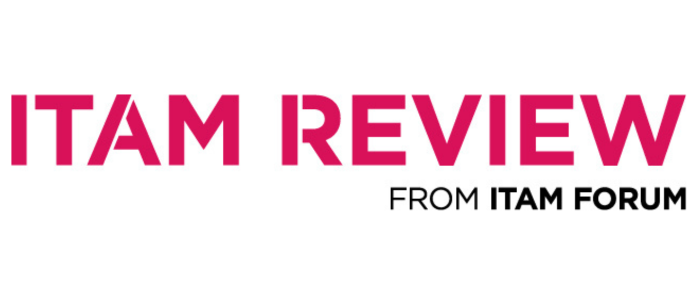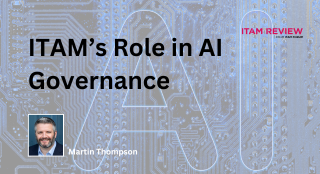Software Vendor Negotiations: When To Get a Lawyer Involved?
 This article has been contributed by Scott D. Rosenberg of Miro Consulting.
This article has been contributed by Scott D. Rosenberg of Miro Consulting.
As consultants who help companies during software negotiations and audits, we often get involved with their internal legal counsel, and occasionally their external counsel. Senior executives usually believe that they know when to get lawyers involved in the negotiation process. One of them told us this issue is as black and white as the contract itself.
If you know anything about software vendor contract negotiations, you know that nothing is black and white! Every company has different software requirements and situations. Good lawyers are absolutely essential to software vendor contracts, but not quite as essential as many of them think!
So when do you get legal counsel involved? Simple: Lawyers should be involved during the review of the final draft contract only from a legal standpoint. That’s it. Lawyers should do little or nothing else beyond this, even if they clamor to “know the contract.” Yes, you need lawyers to interpret the legal terms and conditions. This is what they are uniquely qualified to do for you. What they are not qualified to do – but all too often try to do – is optimize software licenses to fit the organization’s needs now and in the future. They are attorneys. They know the law. They are not CIOs, IT experts, IT asset managers or even business executives who must look at their software assets and align them with business objectives.
Why and when lawyers should not help during software audits:
- Vendor negotiations: While it may seem intuitive to get the lawyer involved in software negotiations, it’s actually almost always a bad idea. The reason: lawyers will only look at the legal aspect of the contract, including how many licenses are needed (e.g. How many licenses are needed for multicore?). What they don’t do is look at it from the needs of the organization, now and in the future. What is the best decision from the IT or operational standpoint? Will it optimize my licenses and allow me the flexibility I need later on? These are critical issues during software contract negotiations, and your lawyer can’t help you.
- Contract re-up: For the same reason, keep the lawyers away during initial contract re-up negotiations. Attorneys may understand that the existing terms and conditions negotiated a while back are a sweet deal, and you may be tempted to direct them to renegotiate the same T&Cs. However, attorneys are not likely to understand the nuances in licensing changes, how they affect the IT organization, or how they affect your re-up. For example, multicore changes – while simple to understand – can lead to extreme pricing changes in licensing. While you can usually grandfather in certain older multicore values, the question to ask is: should we? The multicore may be obsolete in a few months, or perhaps there is a plan to change the servers and the types of cores within the year. This would make the contract re-up and the T&Cs obsolete.
A good lawyer is essential to the software contract negotiation process, but only that part of the process they are trained to execute. Don’t ask them (or let them) help with the larger optimization process that they are not trained to understand.
This article has been contributed by Scott D. Rosenberg of Miro Consulting.
Can’t find what you’re looking for?
More from ITAM News & Analysis
-
Microsoft Pricing Changes: EA Customers Face Price Increases
From 1st November 2025, Microsoft will remove all tiered pricing for Online Services under the Enterprise Agreement. This means all customers renewing or purchasing new Online Services after this date, will receive standard level A pricing ... -
Shaping the Future of ITAM – We Want Your Input
The ITAM Forum is currently running a survey to capture hot topics and pressing challenges facing the ITAM profession. The insights gathered will guide our editorial focus and community content for the year ahead. Early responses ... -
Tesco Sues Broadcom and Computacenter for £100M
What’s going on? UK retailer Tesco says it bought VMware perpetual licences in 2021 with support and upgrade rights running to 2026, plus an option to extend. After Broadcom acquired VMware, Broadcom stopped selling support for ...
Podcast
ITAM training
Similar Posts
-
The M&S Cyberattack: How IT Asset Management Can Make or Break Your Recovery
Marks & Spencer (M&S), the iconic UK retailer, recently became the latest high-profile victim of a devastating cyberattack. Fellow retailers The Co-Op and Harrods were also attacked. Recent reports suggest the rapid action at the Co-Op ... -
AI in ITAM: Insightful Signals from the Front Line
During our Wisdom Unplugged USA event in New York in March 2025, we engaged ITAM professionals with three targeted polling questions to uncover their current thinking on Artificial Intelligence—what concerns them, where they see opportunity, and ... -
How ISO/IEC 19770-1 Can Help Meet FFIEC Requirements
In the world of ITAM, the regulatory spotlight continues to intensify, especially for financial institutions facing increasing scrutiny from regulatory bodies due to the growing importance of IT in operational resilience, service delivery, and risk management. ... -
An Introduction to Scope 4 Emissions
Executive Summary For ITAM teams, sustainability is a core responsibility and opportunity. Managing hardware, software, and cloud resources now comes with the ability to track, reduce, and report carbon emissions. Understanding emission scopes—from direct operational emissions ...





